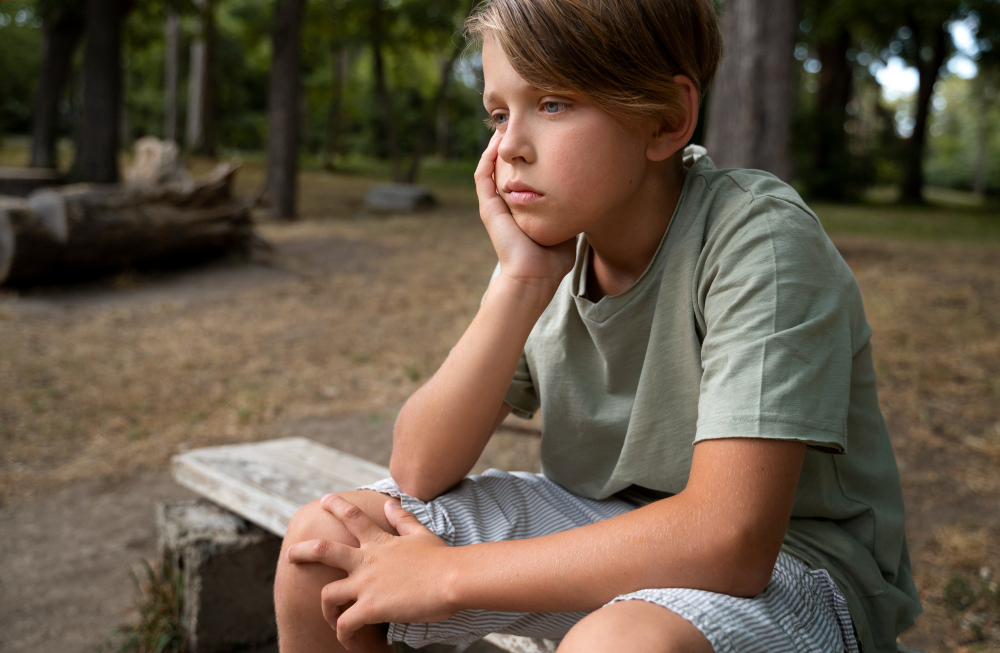
Ableism
Not ignorance, but infrastructure. Not unkindness, but system design.
Ableism, in this project, refers not to occasional slurs or awkward moments of exclusion, but to the full apparatus of policies, practices, and professional logics that define disabled people as deviations to be managed, corrected, or contained. It is embedded in classroom reward charts, IEP timelines, access gatekeeping, and behaviour charts. It is built into online forms, staff training scripts, and the very architecture of “inclusive” processes that function without us. The pieces collected under this tag expose the mechanics of ableism as it operates through design, deference, and denial—while insisting on something better than awareness: structural accountability.
-
Nobody is going to thank you
Nobody tells you that you can pour every last scrap of yourself into advocacy and still feel your bond with your child begin to strain. There is a familiar story passed among parents—one in which you step in, do a little advocacy, and watch as the pieces fall into place. The children grow, the challenges…
-
They keep moving the goalposts while our kids pay the price
It began with a phone call that felt like a lifeline. A new teacher was coming, they said, and maybe this would be the one to understand. We clung to that hope. We paid for another assessment, scheduled more therapy, spent weekends in waiting rooms and weekdays in meetings where the promise of change hovered…
-
Capital planning as an equity issue
School construction and renewal determine more than where children learn—they decide who will be welcomed, supported, and given dignity in public education for decades to come. A district’s capital plan is a blueprint for access, and when that plan is delayed, misaligned, or wasteful, the effects cascade into every other area of the system, including…
-
The legal playbook every parent needs
When your child’s education is on the line, every conversation with a school team feels like walking a tightrope: you want collaboration, but you also carry the weight of knowing that human rights are not polite suggestions — they are legal obligations owed to your child. And here’s the truth: the minute you bring up the Human…
-
PTSD, big reactions, and school’s responsibility for care
The presence of PTSD—whether diagnosed formally or manifesting in trauma-linked behaviours—does nothing to diminish a student’s legal right to safety, dignity, and education. Schools are bound by law to provide accommodations and proactive support to every student, including those whose distress may surface as loud, sudden, or intense reactions. PTSD can be the direct result…
-
When schools say a child went from “zero to sixty”
Let’s rip the mask off this polite, professional charade: when schools say a child went from “zero to sixty,” they are lying to protect themselves. They are covering for the adults who ignored every warning, missed every signal, and left a child to be harassed, baited, and humiliated until their nervous system screamed for survival.…
-
The brutal truth about schools weaponising therapy to deny your child’s rights
Schools are weaponising therapy as a gatekeeper to support—forcing parents to “prove” worth through endless interventions while shielding systemic harm. The system is broken, not our children.
-
25 signs that your IEP team is disabling your child
In the space where families gather with school teams to shape a child’s Individual Education Plan, the language often carries more weight than paper can bear, for each phrase can open a door toward inclusion or quietly plant the seeds of exclusion, and the difference lies in whether the plan nourishes capacity or erodes it.…
-
The infection of neoliberalism in Canadian public education
The ideology of neoliberalism, with its relentless emphasis on competition, individual responsibility, and market logic, has seeped deeply into Canadian public education. It presents itself as pragmatic and modernising, promising efficiency, innovation, and responsiveness to “stakeholders.” Yet beneath this rhetoric lies a corrosion of the foundational principles of public schooling — equity, universality, and the…
-
ADHD and autism aren’t phases
We don’t expect a wheelchair user to “earn” the right to walk by graduation. We don’t tell a student with diabetes that the goal is to get off insulin. And yet, in schools across our district, support for autistic and ADHD students is treated like a ladder they’re supposed to climb once and throw away…
-
Why do teachers punish the whole class for one student?
Collective punishment is when a group is made to face the same consequence because of the actions of one person or a small number of people. In school, this can mean the entire class loses recess, an activity is cancelled, or privileges are taken away because of something one student did. The rules are applied…
-
Disgusted with myself: how school advocacy erodes self-compassion
Some days I feel my own face harden, the jaw locking and the air leaving my lungs in a clipped exhale, the eyes narrowing into a refusal that feels like muscle memory. It is the same recoil I have seen across the meeting table, the same signal that too much has been brought into the…
-
The afterlife of austerity
When public institutions are forced to survive under prolonged austerity, something deeper than budgets begins to break—something in the connective tissue of trust, of care, of the quiet, ordinary belief that systems exist to serve people. The myth of resilience—the comforting story we tell ourselves about teachers with hearts of gold and staff who always…
-
15 red flags your child’s school is running the playbook on you
How to spot coercive proceduralism before it drains your energy, your trust, and your child’s future. You may have been advocating for your child for months—attending meetings, responding to emails, following every process they set out—yet the accommodations you discussed never seem to appear in the classroom. You might notice your child’s struggles at school…
-
Institutional gaslighting of caregivers
You refuse to forget, because forgetting would mean abandoning your child’s reality—and you have already watched too many adults do that with a straight face and a professional tone. You refuse to downplay what has happened, because the harm is not theoretical—it lives in your child’s nervous system, in her school avoidance, in her refusal…
-
Yukon schools under scrutiny for using restraint and seclusion on students with disabilities
The Yukon government says it is working to make schools safer after families raised serious concerns about the use of restraint and seclusion—particularly involving students with disabilities. Education Minister Jeanie McLean acknowledged that these practices have caused harm and stated that a review is underway to develop clearer policies and alternatives grounded in trauma-informed approaches.…
















